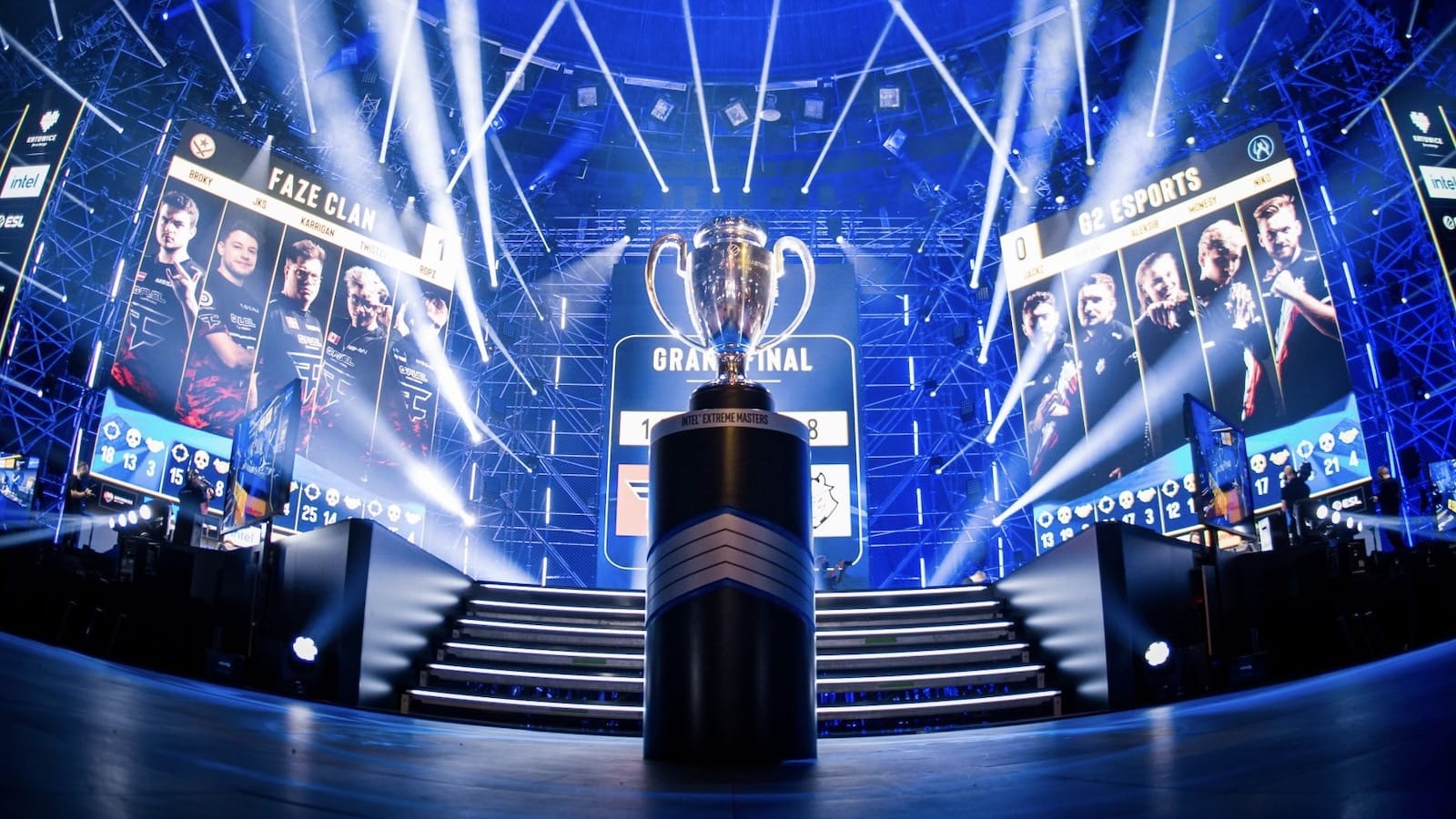Esports: The Future of Competitive Entertainment
About
Esports: The Evolution, Impact, and Future of Competitive Gaming: It (electronic sports) refers to organized competitive video gaming, where professional players and teams compete in popular video game titles. Unlike casual gaming, It involves structured tournaments, leagues, and events with millions of fans, substantial prize money, and sponsorship deals. It spans multiple genres, including first-person shooters (FPS), multiplayer online battle arenas (MOBA), sports simulators, and battle royale games.
History
- Early Beginnings (1970s–1980s):
- The first known event was held in 1972 at Stanford University, featuring Spacewar.
- In 1980, Atari’s Space Invaders Championship drew over 10,000 participants, marking the start of large-scale gaming competitions.
- Growth Era (1990s):
- Games like Doom, Quake, and StarCraft gained popularity, with online multiplayer capabilities driving esports development.
- South Korea emerged as a hub for esports, with StarCraft competitions broadcast on television.
- Mainstream Rise (2000s):
- Platforms like Twitch (launched in 2011) and YouTube enabled global audiences to watch live events.
- The launch of tournaments like The International for Dota 2 introduced multi-million-dollar prize pools.
- Global Boom (2010s–Present):
- It now features professional leagues (e.g., Overwatch League, League of Legends Championship Series).
- Global events like the Fortnite World Cup attract millions of live and online viewers.
Facts
- Massive Viewership: It had over 500 million viewers globally in 2023, with further growth projected.
- Economic Impact: The industry surpassed $2 billion in revenue by 2025, including sponsorships, media rights, and merchandise.
- Diverse Genres: Popular games include League of Legends, CS:GO, Valorant, Call of Duty, and FIFA.
- Youth-Centric: Most fans are aged 16-34, making it a powerful cultural and economic force.
- Olympic Prospects: It has been included in the Asian Games and is under consideration for future Olympic events.
Significance
- Global Community: It connects fans and players from around the world, transcending cultural and linguistic barriers.
- Economic Driver: It generates employment in areas like event management, broadcasting, and content creation.
- Technological Advancement: It drives innovation in gaming hardware, software, and live-streaming technologies.
- Skill Development: Players develop strategic thinking, teamwork, and quick decision-making skills.
- Cultural Influence: It impacts fashion, music, and traditional sports through collaborations and crossovers.
Wishing and Observance
- Wishing Messages:
- “Level up your skills and aim for the win—happy gaming to all fans!”
- “May your strategies be sharp, your reflexes quick, and your games victorious. Happy esports day!”
- Special Observance Days:
- World Esports Day (October 23): Celebrates the growth and impact worldwide.
- National Video Games Day (September 12): Highlights the importance of video games, including competitive gaming.
Important Points
- Inclusivity: It welcomes participants of all backgrounds, ages, and abilities.
- Health Considerations: Players face challenges like physical strain, mental health issues, and burnout, necessitating better support systems.
- Educational Integration: Universities offer scholarships and courses in gaming-related fields.
- Ethical Concerns: The industry is addressing issues like cheating, match-fixing, and toxic behavior.
- Global Popularity: Countries like South Korea, the U.S., and China lead the market, with regional leagues growing rapidly.
Importance to Society
- Youth Engagement: It provides young people with a platform to explore their passions constructively.
- Skill Development: Players and organizers develop transferable skills, including leadership, communication, and problem-solving.
- Economic Growth: It drives innovation in entertainment and technology, creating numerous job opportunities.
- Community Building: Fans and players form strong, supportive communities around their favorite games and teams.
- Cultural Influence: It introduces gaming culture into mainstream media, fostering acceptance and representation.
It is not just entertainment; it’s a transformative force shaping how we play, connect, and compete in the digital age. Would you like to explore any specific aspect further, such as educational initiatives or esports tournaments?
Esports (short for electronic sports) has transformed from a niche hobby into a global phenomenon, drawing millions of viewers and generating billions in revenue. Competitive video gaming, once relegated to small communities, is now a legitimate industry with professional players, leagues, and international tournaments.
What Are Esports?
It refers to organized, competitive gaming where players or teams face off in popular video games. These competitions span a variety of genres, including:
- First-Person Shooters (FPS): Games like Counter-Strike and Call of Duty.
- Multiplayer Online Battle Arenas (MOBA): League of Legends and Dota 2.
- Battle Royales: Fortnite and PUBG.
- Sports Simulations: FIFA and NBA 2K.
- Fighting Games: Street Fighter and Super Smash Bros.
The Rise of Esports
- Technological Advancements:
High-speed internet and advanced gaming hardware have fueled the growth of esports, making online play and live streaming seamless. - Streaming Platforms:
Platforms like Twitch and YouTube Gaming provide a stage for gamers to broadcast matches to a global audience. - Massive Tournaments:
Events like The International (Dota 2) and League of Legends World Championship attract millions of viewers and offer prize pools exceeding $40 million. - Corporate Sponsorships:
Major brands like Intel, Red Bull, and Samsung invest heavily in esports, legitimizing the industry further.
Impact of Esports
- Economic Growth:
It contributes significantly to the global economy through sponsorships, merchandise, and ticket sales. - Cultural Shift:
Competitive gaming has shifted perceptions, positioning gamers as athletes and influencers. - Career Opportunities:
It creates jobs beyond players, including coaches, analysts, casters, and event organizers. - Community Building:
Gaming unites players and fans worldwide, fostering diverse and inclusive communities.
Challenges in Esports
- Health Concerns:
Professional players face physical and mental health risks, including repetitive strain injuries and burnout. - Accessibility:
Not all aspiring players have access to the necessary resources, such as high-end gaming PCs or training programs. - Regulation Issues:
The lack of a unified governing body leads to inconsistent rules and potential exploitation of players. - Toxicity:
Online harassment and toxic behavior within gaming communities remain significant challenges.
The Future of Esports
- Mainstream Recognition:
With esports making its way into the Asian Games and discussions of inclusion in the Olympics, its global legitimacy continues to grow. - Technological Integration:
Advances in VR and AR could redefine the competitive gaming experience. - Educational Opportunities:
Universities are offering esports scholarships, while schools introduce esports clubs to nurture young talent. - Cross-Industry Collaborations:
It is partnering with industries like fashion, music, and film to create immersive fan experiences.
Why Matters to Society
- Inclusivity: It welcomes participants from all genders, ages, and backgrounds.
- Skill Development: Players develop strategic thinking, teamwork, and quick decision-making skills.
- Global Connection: It transcends borders, fostering international collaboration and understanding.
It is no longer just about gaming; it’s a cultural revolution reshaping entertainment, sports, and technology. Its growth is a testament to the power of digital connectivity and human creativity. As the industry evolves, its influence on global culture and economy will only deepen, making it an exciting frontier to watch.
Would you like more detailed insights into specific games, player profiles, or the business side?
9 Key Insights: The Evolution, Impact, and Future of Competitive Gaming
Esports, or electronic sports, has rapidly evolved into a global industry, merging gaming, sports, and entertainment. Here are 9 critical insights that capture the essence, growth, and future of competitive gaming:
1. What Is Esports?
It involves organized, competitive video gaming where individuals or teams compete in popular titles like League of Legends, Dota 2, and Counter-Strike. These competitions are broadcast to millions globally, often rivaling traditional sports in viewership.
2. The Meteoric Rise of Esports
From small gaming communities to multi-million-dollar tournaments, esports has skyrocketed in popularity due to:
- Accessible streaming platforms like Twitch and YouTube.
- Global tournaments with massive prize pools.
- Celebrity gamers and influencers driving fan engagement.
3. Economics
The industry is a financial powerhouse, valued at over $1.5 billion in 2025. Revenue streams include sponsorships, advertising, ticket sales, and merchandise. Major brands like Coca-Cola, Intel, and Nike are now key players in esports.
4. Career Opportunities
It offers a variety of career paths beyond gaming, such as:
- Content Creators: Streamers and influencers.
- Coaches and Analysts: Tactical experts for professional teams.
- Event Organizers: Managing tournaments and fan experiences.
- Casters and Hosts: Providing commentary and hosting live events.
5. Health and Wellbeing Challenges
Professional gamers face challenges like:
- Physical Health Risks: Repetitive strain injuries and poor posture.
- Mental Health Struggles: Stress, burnout, and performance pressure.
Organizations are now prioritizing player health with fitness programs and psychological support.
6. Esports and Society
contributes to society by:
- Building Communities: Connecting players and fans globally.
- Fostering Inclusivity: Welcoming participants from diverse backgrounds.
- Developing Skills: Enhancing teamwork, communication, and strategic thinking.
7. Challenges Facing
Despite its success, encounters hurdles:
- Toxicity in Gaming: Harassment and unsportsmanlike behavior in online communities.
- Regulatory Issues: Lack of a unified governing body.
- Digital Divide: Limited access to resources for aspiring gamers in underprivileged areas.
8. Future
The industry is poised for exciting advancements:
- Integration with VR/AR: Immersive gaming experiences for players and audiences.
- Education: Scholarships, school programs, and career pathways.
- Mainstream Recognition: Growing inclusion in traditional sports events like the Asian Games.
9. Cultural Movement
It is more than just competition; it’s reshaping how we perceive entertainment and community. Its ability to blend gaming, technology, and creativity makes it a defining element of modern culture.
Conclusion
It has grown into a cultural and economic juggernaut, offering endless opportunities for players, fans, and businesses. Its ability to transcend boundaries and innovate ensures that will remain a dominant force in entertainment and sports for years to come.
Would you like to explore a deeper dive into any of these insights or focus on a specific game or tournament?










